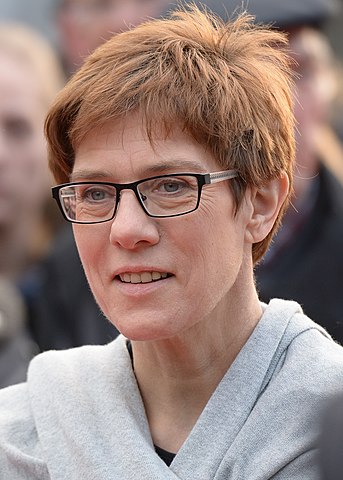
Annegret Kramp-Karrenbauer,
In October 2018, German Chancellor Merkel announced that she would not be standing for reelection as leader of her party, the Christian Democratic Union.
In the December election that followed, Merkel's protégé, Annegret Kramp-Karrenbauer, (Germany's current Minister of Defence) was elected leader of the CDU by a narrow margin.
Today, CDU insiders have confirmed Kramp-Karrenbauer will be resigning her position as CDU leader this year and will not put her name forward to take over as chancellor in the 2021 federal election.
Why does this matter?
- The CDU/CSU alliance which brought Merkel to power remains the biggest party in the Bundestag, but has shrunk in support holding 246 seats out of 709.
- The alliance rules in coalition with the Free Democratic Party and the Greens. It's a fragile coalition united mainly by their desire to keep the Alternative für Deutschland (Alternative for Germany) party out of government.
- The AfD was founded in 2013. Depending on who one asks, the party has been described as nationalist, Eurosceptic, right-wing, populist, racist, anti-Semitic, Islamophobic. Nevertheless, they became a force to be reckoned with after winning 91 seats in 2017.
- In September 2019, the AfD made decisive gains in the states of Brandenburg and Saxony.
- Last week, the AfD became kingmakers in the state of Thuringia, installing the FDP's Thomas Kemmerich as premier.
What is clear is that the CDU/CSU alliance is on a downward spiral while the AfD is on an upward trajectory. The AfD does not favour immigration or the EU.
I predict the AfD will become kingmakers in the 2021 election. I expect Germany's position on both immigration and the EU to then be up for review.
